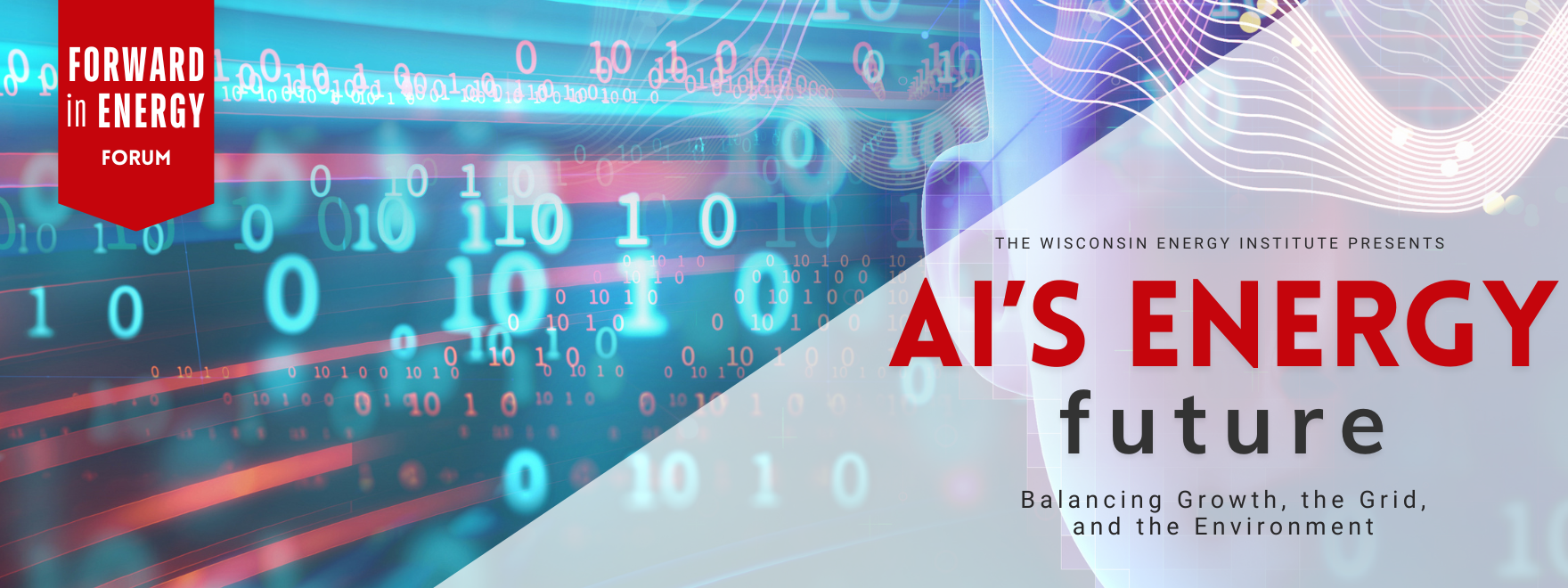
As use of artificial intelligence grows, so does the demand for electricity and water to power and cool hyper-scale data centers. Many utilities have proposed building additional fossil fuel power plants or keeping older ones running to meet this new demand. Meanwhile, most major computing companies have made commitments to power their operations with clean energy. In this Forum, we’ll explore the potential demands that the growth of AI and data centers may place on the grid and what can be done to mitigate its environmental impact (e.g. improving energy efficiency of computing, or locating and operating data centers in ways that maximize use of renewable energy). How much will electricity demand from data centers truly grow? How might that growth affect both the environment and other electricity customers? And what can we do to ensure that we address that growth in the most sustainable way?
Join us on Tuesday, January 28 at 4:30 p.m. CT either in-person at the Wisconsin Energy Institute or online via Zoom Webinar. Registration is recommended for all and required for online attendance.
The University of Wisconsin-Madison is a barrier free campus and is committed to providing equal opportunity for participation in all programs, services, and activities. If you need an accommodation for this event please let us know by emailing outreach@energy.wisc.edu or calling 608-890-0946. Requests made with less than 3 weeks’ notice will be honored when possible.
Moderator
Line Roald, Associate Professor, Grainger Institute Fellow, Electrical and Computer Engineering, UW-Madison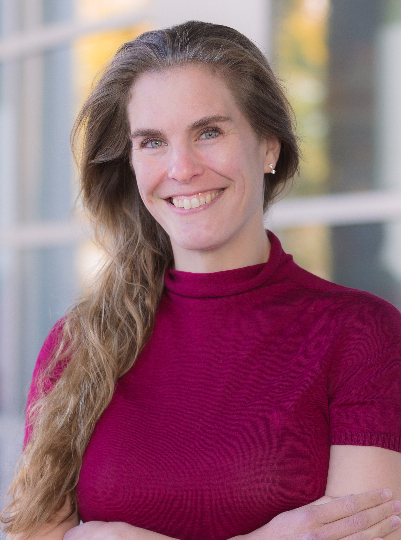 Line Roald's research focuses on modeling and optimization of energy systems to ensure reliable grid operations as renewable sources such as solar and wind replace traditional forms of generation such as coal and nuclear. Her group is developing mathematical tools and software implementations to model and optimize system operation and energy markets, while taking into account the impact of uncertain events such as variations in renewable energy production, component failures and large-scale outages
Line Roald's research focuses on modeling and optimization of energy systems to ensure reliable grid operations as renewable sources such as solar and wind replace traditional forms of generation such as coal and nuclear. Her group is developing mathematical tools and software implementations to model and optimize system operation and energy markets, while taking into account the impact of uncertain events such as variations in renewable energy production, component failures and large-scale outages
Panelists
Amy Barrilleaux
Communications Director, Clean Wisconsin
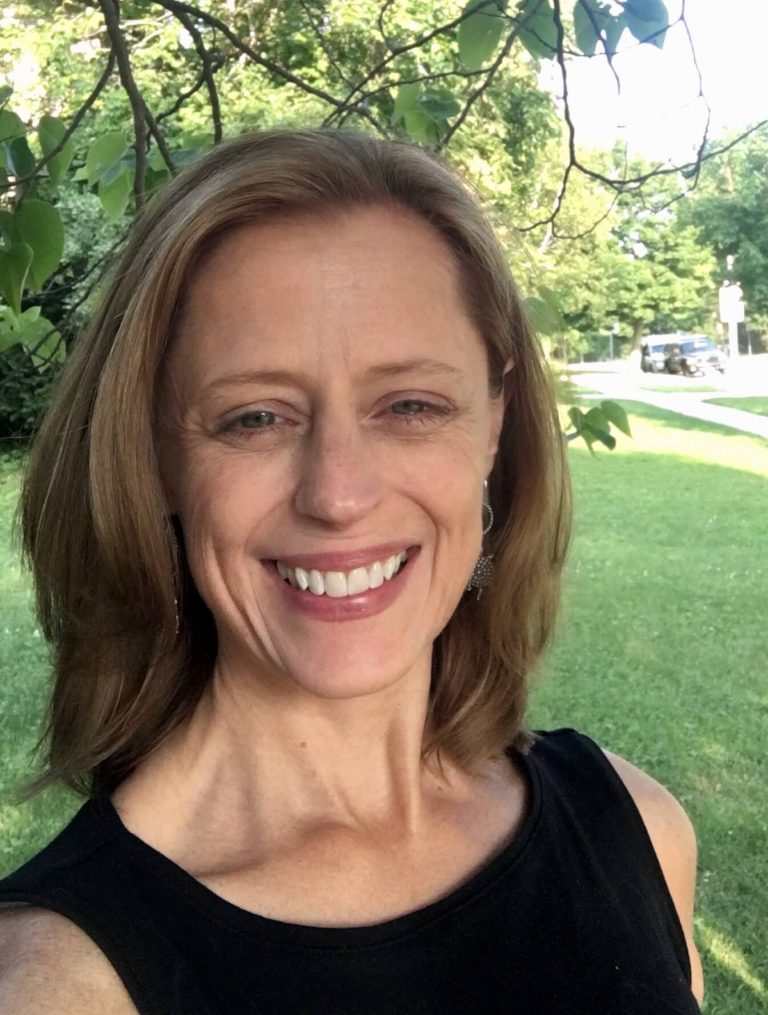
As Communications Director, Amy oversees Clean Wisconsin’s external communication strategy, including media relations, public affairs, content marketing, digital advertising and social media. She also hosts Clean Wisconsin’s State of Change podcast. Amy has served on the national Public Affairs Council of the American Water Works Association and was also chair of the Image and PR Committee of the Wisconsin Section of the American Water Works Association. She has been a frequent speaker about source water protection and crisis communication at conferences across the region and country, including the U.S. Water Alliance One Water Summit, the Symposium on Water Research for Wisconsin, Midwestern Legislative Conference, and Mid-America Regulatory Conference. Amy has worked as an award-winning journalist in television, print, radio news, and she leans on that vital storytelling experience every day to engage new audiences around the importance of protecting our environment.
Tyler Huebner
Energy Market Development, Central Region (US), Google
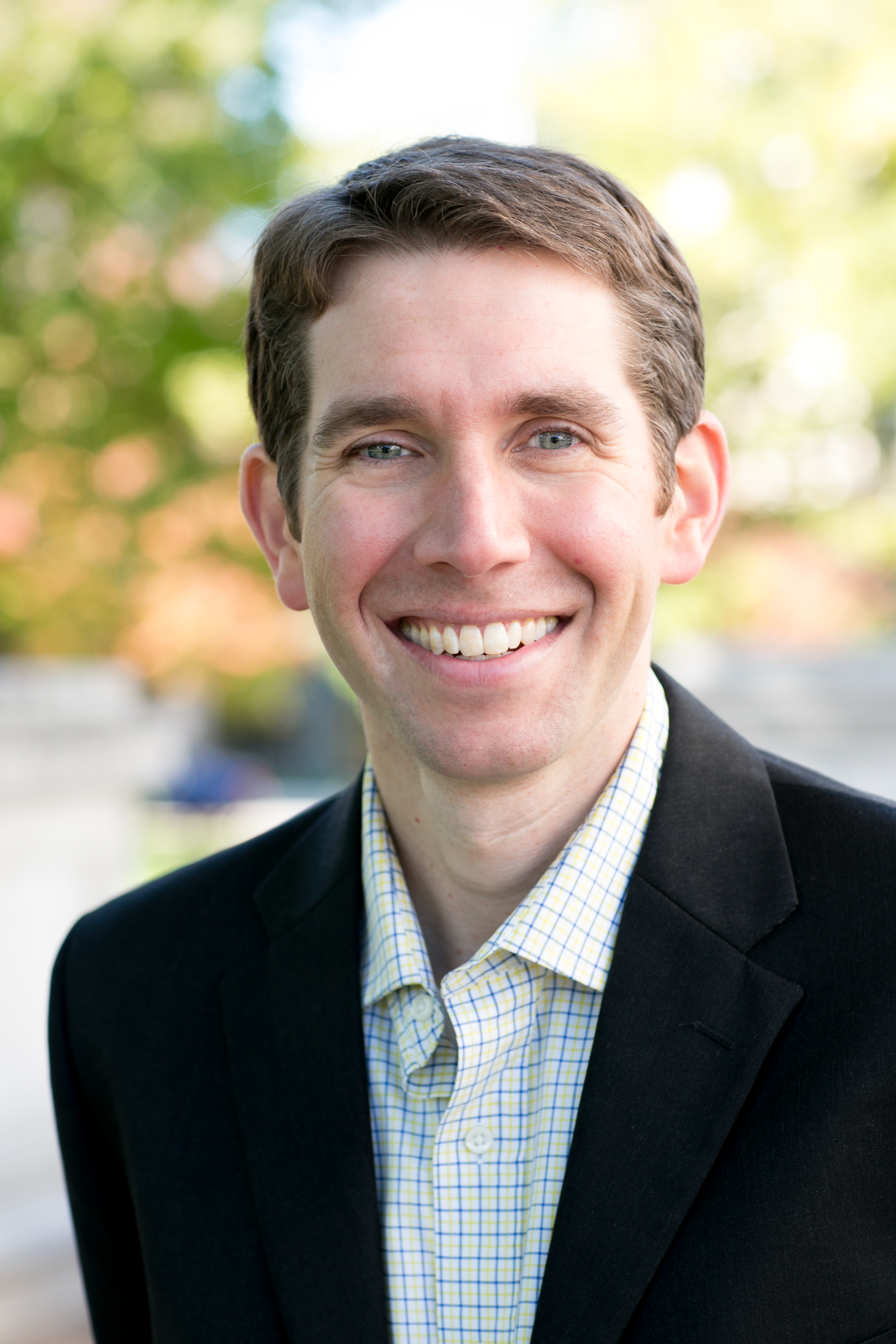
Tyler Huebner leads Google's Energy Market Development efforts in the Upper Midwest, helping the company grow data center and AI operations while pursuing Google's ambitious 24x7 carbon-free energy goals. Previously, Tyler was a Governor-appointed Commissioner at the Public Service Commission of Wisconsin where he regulated the state's electricity, natural gas, and water utilities, and supported an ambitious broadband expansion initiative. Tyler's early career included consulting at ICF International, two years at the U.S. Department of Energy, and Executive Director at RENEW Wisconsin.
Costa Samaras
Director of the Scott Institute for Energy Innovation, Carnegie Mellon University
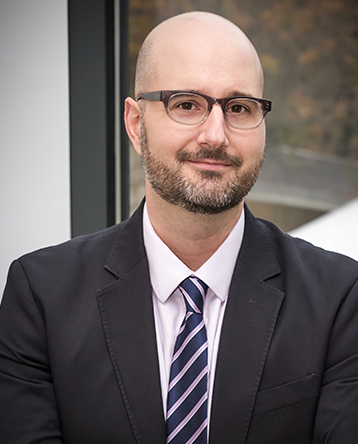
Constantine (Costa) Samaras is the Director of the Carnegie Mellon University Scott Institute for Energy Innovation, the Trustee Professor of Civil and Environmental Engineering, and an Affiliated Faculty Member in the Department of Engineering and Public Policy. His research focuses on the pathways to clean, climate-safe, equitable, and secure energy and infrastructure systems. Costa analyzes how technologies and policies affect energy use and national security, resilience to climate change impacts, economic and equity outcomes, and life cycle environmental emissions and other externalities. He is a Founder and Director of both the Center for Engineering and Resilience for Climate Adaptation and the Power Sector Carbon Index. He is by courtesy, a faculty member in CMU's H. John Heinz III College of Information Systems and Public Policy. From 2021-2024, he served in the White House Office of Science and Technology Policy (OSTP) as the Principal Assistant Director for Energy, OSTP Chief Advisor for Energy Policy, and then OSTP Chief Advisor for the Clean Energy Transition, where he worked with the OSTP Director, Deputy Director for Industrial Innovation, and senior governmental leaders in coordinating Federal activities on U.S. energy policy, assessing energy technologies for meeting U.S. climate, resilience, equity, and security objectives, and aligning energy innovation systems to achieve U.S. climate commitments. Costa received a joint Ph.D. in Civil and Environmental Engineering and Engineering and Public Policy from Carnegie Mellon, a M.P.A. in Public Policy from the Wagner Graduate School of Public Service at New York University, and a B.S. in Civil Engineering from Bucknell University.
Matt Sinclair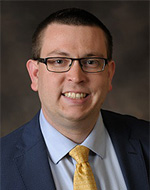
Assistant Professor of Computer Sciences, UW–Madison
Matt Sinclair is an Assistant Professor in the Computer Sciences Department, an affiliate faculty member of the Electrical & Computer Engineering Department, and an affiliate of the Teaching Academy at the University of Wisconsin-Madison. He is primarily a computer architect, although his work also includes other areas such as operating systems and parallel programming. Sinclair is passionate about designing the tools used to study future heterogeneous systems, including serving as a member of the gem5 Project Management Committee. As an instructor at UW-Madison, he is currently part of the Excel Initiative, and was previously a Madison Teaching & Learning Fellow. Dr. Sinclair is also also the current steward for the ISCA Hall of Fame. His research has been recognized several times, including with an NSF CAREER award, a 2018 ACM Doctoral Dissertation Award nomination, a Qualcomm Innovation Fellowship, the 2018 David J. Kuck Outstanding PhD Thesis Award, an ACM SIGARCH - IEEE Computer Society TCCA 2018 Outstanding Dissertation Award Honorable Mention, two Mavis Future Faculty Fellowships, a Feng Chen Memorial Award, and W.J. Poppelbaum Award, and Saburo Muroga Fellowship. He completed his PhD in Computer Architecture in the Computer Science Department at the University of Illinois at Urbana-Champaign under the supervision of Sarita Adve and was a postdoc at AMD Research.
